Carbohydrates have long held center stage in discussions about energy, metabolism, and dietary health. As nutritional trends evolve and low-carb diets gain popularity, many individuals are asking what happens if carbohydrate is not around in the body. While there is no denying that reducing carbohydrate intake can yield short-term benefits for some individuals, the deeper implications of carbohydrate deficiency are often overlooked or misunderstood. This article explores the metabolic, physiological, and psychological effects of carbohydrate restriction, with a focus on understanding low carb side effects and the potential risks of carbohydrate deficiency.
You may also like: Macronutrients vs Micronutrients: What the Simple Definition of Macronutrients Reveals About Your Diet and Health
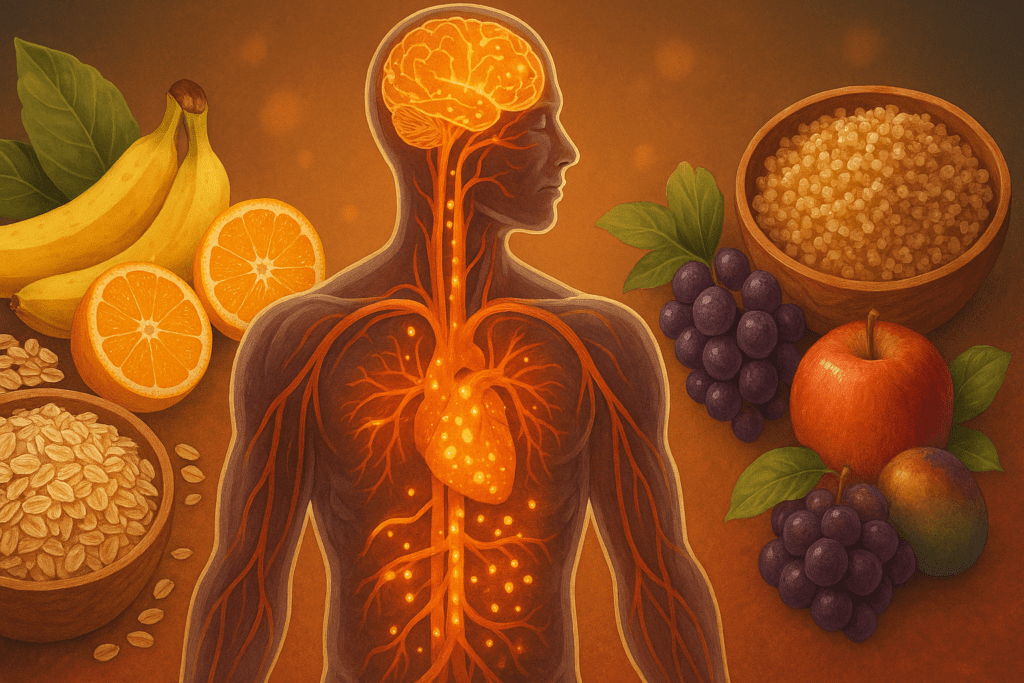
Carbohydrates and Their Essential Role in the Body
Carbohydrates are one of the three primary macronutrients that fuel the human body, alongside protein and fat. Their primary role is to provide energy, particularly in the form of glucose, which serves as the preferred fuel for the brain, red blood cells, and muscles during physical activity. When carbohydrates are consumed, they are broken down into glucose, which is either used immediately or stored as glycogen in the liver and muscles for later use. If carbohydrate is not around to maintain this cycle, the body must adapt through alternative metabolic pathways such as gluconeogenesis and ketogenesis.
Importantly, carbohydrates are not just about calories. They also serve as a delivery vehicle for essential micronutrients, antioxidants, and dietary fiber, which support gut health, immune function, and chronic disease prevention. Diets that significantly restrict carbohydrate intake often reduce consumption of whole grains, legumes, fruits, and vegetables—all vital components of a balanced, nutrient-rich diet. Consequently, one thing that happens when you are deficient to carbohydrates is a drop in dietary fiber intake, which may disrupt gut microbiota and lead to digestive issues such as constipation and bloating.
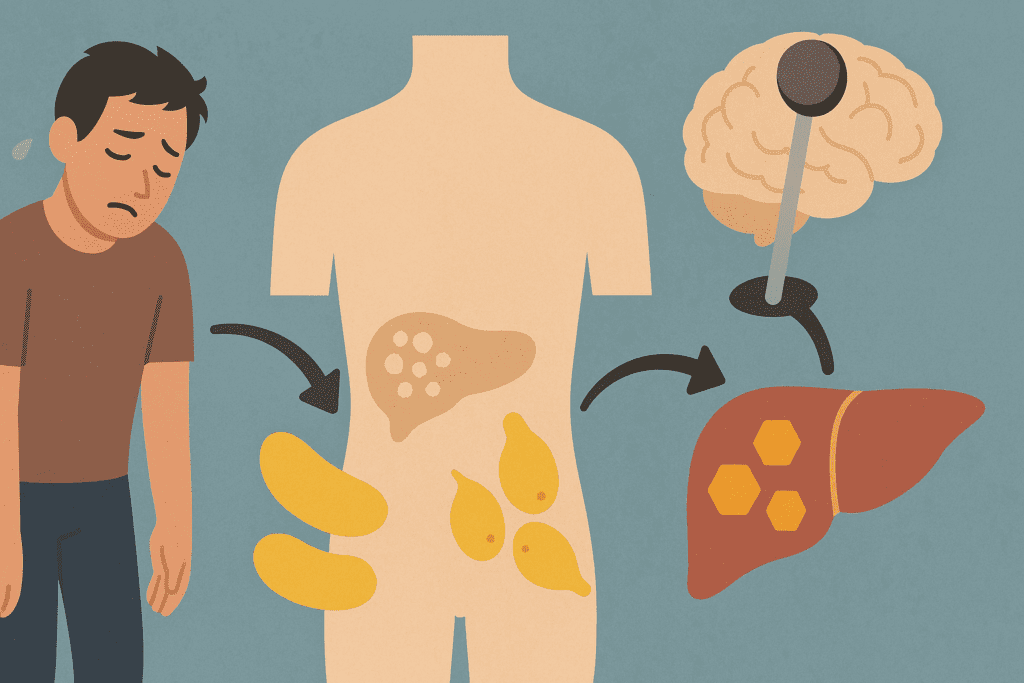
Understanding the Metabolic Shift in Low-Carb Diets
When carbohydrate availability drops significantly, the body undergoes a series of metabolic changes. Initially, glycogen stores in the liver and muscles are depleted. Because glycogen is stored with water, its breakdown also leads to rapid water loss, which is one reason why people often experience quick weight loss in the early stages of a low-carb diet. However, once glycogen is gone, the body must turn to other sources of energy. This is when ketone production begins, signaling a metabolic state called ketosis.
Ketosis involves the conversion of fats into ketones, which the brain and other tissues can use for fuel in the absence of glucose. While some individuals adapt well to this state, others may experience notable low carb side effects during this transition. These can include fatigue, headaches, dizziness, muscle cramps, and irritability—collectively referred to as the “keto flu.”
It is important to understand that not all individuals respond to ketosis the same way. Factors such as age, baseline metabolic health, physical activity levels, and genetic predisposition all influence how well a person tolerates carbohydrate restriction. For some, the transition is smooth and comes with minimal discomfort. For others, however, the side effects can be persistent and even interfere with daily functioning, particularly when the diet lacks proper electrolyte balance and adequate hydration.
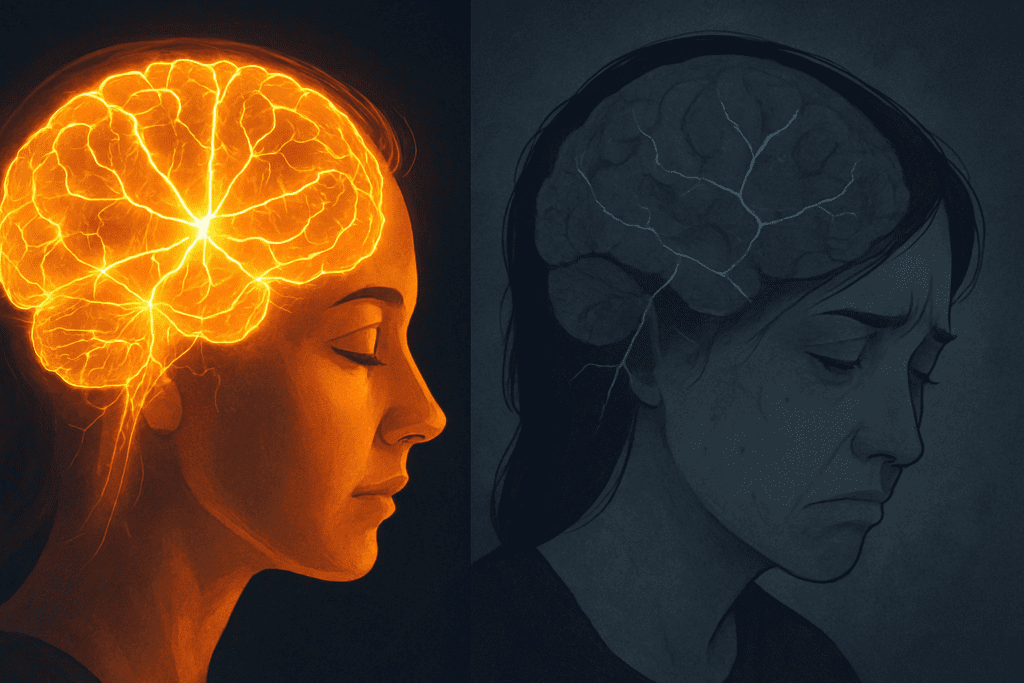
Neurological and Psychological Impacts of Carbohydrate Deficiency
Beyond the metabolic effects, low carbohydrate availability can significantly affect cognitive and emotional well-being. The brain relies heavily on glucose for fuel, and although it can adapt to using ketones, this transition is not immediate or seamless. In the early stages of a low-carb diet, individuals often report “brain fog,” reduced concentration, and difficulty performing mentally demanding tasks. These symptoms may be especially pronounced in individuals who perform cognitively intense work or academic tasks.
There is also evidence suggesting that serotonin, a neurotransmitter involved in mood regulation, may be impacted by carbohydrate intake. Carbohydrates facilitate the entry of tryptophan into the brain, which is a precursor for serotonin synthesis. If carbohydrate is not around to support this mechanism, some individuals may experience mood disturbances such as irritability, anxiety, or even depressive symptoms.
While these effects may subside over time as the brain adapts to ketones, the initial period of adjustment can be difficult. For individuals already prone to mood disorders or mental fatigue, these low carb side effects may exacerbate pre-existing conditions. Hence, any attempt to adopt a low-carb diet should be undertaken with careful planning, professional guidance, and monitoring of mental health.
Physical Performance and the Energy Gap
Carbohydrates play a crucial role in athletic performance, especially in high-intensity or endurance sports. Muscle glycogen serves as the primary fuel during strenuous activity, and its depletion can significantly impair performance. When carbohydrate intake is too low, athletes may experience reduced power output, early fatigue, and longer recovery times.
One thing that happens when you are deficient to carbohydrates is a noticeable decline in physical performance, particularly during anaerobic activities that rely heavily on glucose. While some endurance athletes may eventually adapt to a higher reliance on fat and ketones for energy, this process can take weeks or even months and may not fully restore peak performance levels.
In practical terms, this means that individuals who engage in regular or competitive physical training may need to reevaluate the suitability of a low-carb diet. Strategic carbohydrate intake before or after training sessions can help replenish glycogen stores and optimize recovery, even within the framework of an overall reduced carbohydrate plan. Balancing energy needs with macronutrient intake is essential for maintaining both physical vitality and long-term training goals.
Micronutrient Deficiencies and Gastrointestinal Disruption
Another overlooked aspect of carbohydrate restriction is the impact on micronutrient status and gut health. Whole-food carbohydrate sources such as fruits, vegetables, legumes, and whole grains are rich in vitamins, minerals, and antioxidants that support cellular function and immune resilience. When these foods are restricted, the risk of nutrient deficiencies increases, particularly for B vitamins, vitamin C, potassium, and magnesium.
Additionally, the reduction of dietary fiber can significantly alter the composition and function of gut microbiota. Fiber serves as a prebiotic, feeding beneficial bacteria and supporting gut integrity. If carbohydrate is not around in sufficient amounts, fiber intake often falls below recommended levels, potentially leading to gastrointestinal issues such as irregular bowel movements, bloating, and even a weakened immune barrier.
Low carb side effects in this context can manifest as both physical and systemic symptoms. Individuals may report increased susceptibility to illness, poor wound healing, or chronic fatigue, all of which may stem from insufficient micronutrient intake and compromised gut health. These consequences highlight the importance of choosing nutrient-dense, fiber-rich carbohydrate sources even within a moderately reduced-carb framework.
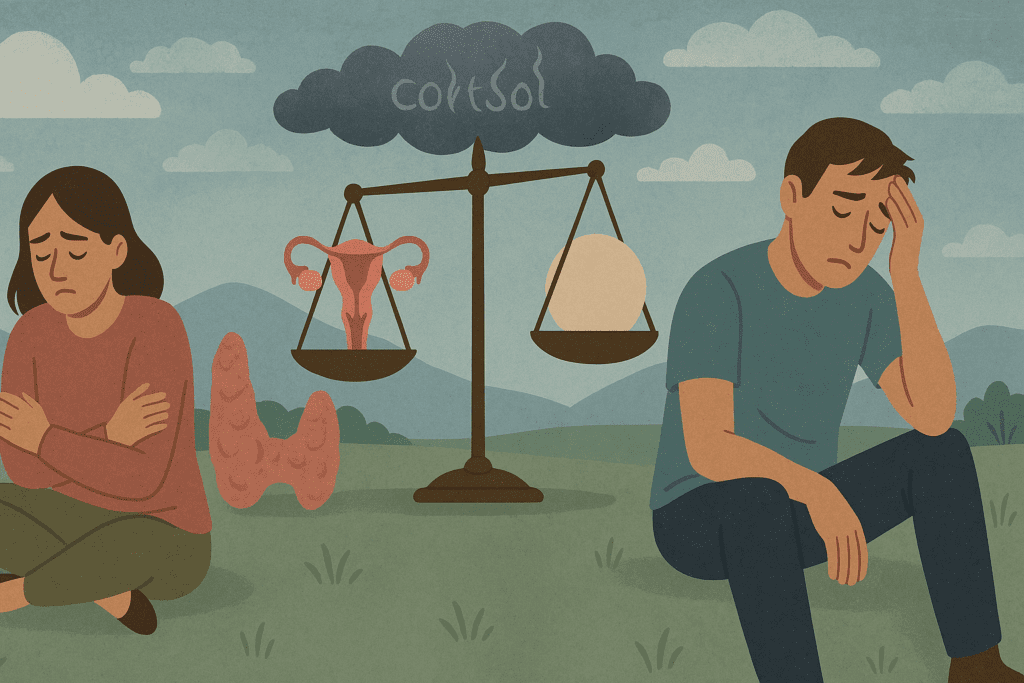
Hormonal and Endocrine Disruption
Carbohydrate availability also influences hormonal balance, particularly in the context of thyroid function, stress response, and reproductive health. The thyroid gland relies on adequate glucose availability to convert the inactive hormone T4 into the active form T3. In low carbohydrate environments, this conversion can be impaired, potentially leading to symptoms of hypothyroidism such as fatigue, cold sensitivity, and weight gain.
In addition, low carbohydrate intake may elevate cortisol, the primary stress hormone. While cortisol plays a role in mobilizing energy during fasting or stress, chronically elevated levels can contribute to muscle breakdown, blood sugar imbalances, and even suppression of immune function. For some individuals, this may mean that one thing that happens when you are deficient to carbohydrates is a persistent sense of stress or burnout.
For women, carbohydrate restriction has also been linked to disruptions in reproductive hormones and menstrual cycles. This is particularly relevant for female athletes or those with low body fat percentages, who may be more sensitive to dietary extremes. A balanced intake of carbohydrates supports hormonal equilibrium and is essential for maintaining fertility, bone health, and metabolic stability.
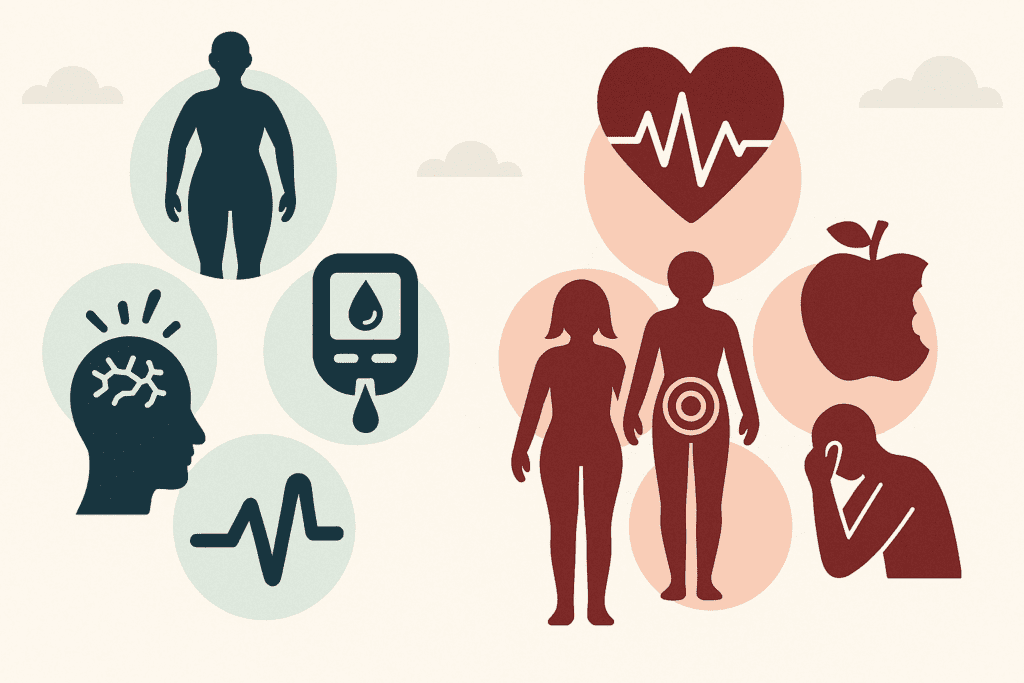
Long-Term Risks of Sustained Carbohydrate Deficiency
While short-term carbohydrate restriction may offer certain benefits such as improved insulin sensitivity, weight loss, or glycemic control, the long-term risks should not be underestimated. Sustained carbohydrate deficiency can increase the risk of nutrient inadequacies, exacerbate existing health conditions, and lead to adverse effects on cardiovascular, cognitive, and digestive health.
Low carb diet side effects may extend beyond the initial adaptation period, especially if the diet lacks variety and proper supplementation. Long-term adherence to overly restrictive plans has been associated with elevated LDL cholesterol, reduced HDL, and increased all-cause mortality in some epidemiological studies. These findings suggest that extreme carbohydrate restriction may not be suitable or sustainable for all individuals.
Furthermore, social and psychological aspects of eating are also affected. Carbohydrate-rich foods often form the basis of communal meals, cultural traditions, and personal comfort. Avoiding these foods completely can lead to feelings of isolation, rigidity, and disordered eating patterns. Therefore, a more balanced, flexible approach to carbohydrate intake may be both healthier and more enjoyable in the long run.
Reevaluating the Role of Carbohydrates in a Balanced Diet
Given the wide range of low carb side effects and the systemic importance of carbohydrates, it is crucial to reevaluate how we view this macronutrient. Rather than framing carbohydrates as inherently harmful or fattening, we should consider their quality, source, and role within an individual’s broader dietary pattern. Whole, minimally processed carbohydrates such as oats, quinoa, sweet potatoes, and berries offer a wealth of health benefits without the downsides often attributed to refined sugars and flours.
Incorporating carbohydrates strategically—for instance, around periods of increased mental or physical demand—can enhance performance, mood, and metabolic flexibility. It is also worth noting that the glycemic response to carbohydrates can be moderated by pairing them with protein, fat, or fiber, reducing the risk of blood sugar spikes. This approach allows individuals to enjoy the benefits of carbohydrates while minimizing potential drawbacks.
Ultimately, the decision to reduce or include carbohydrates should be personalized, evidence-based, and guided by both short-term goals and long-term health considerations. Consulting with a registered dietitian or healthcare provider can help tailor a dietary strategy that supports energy levels, nutrient sufficiency, and overall well-being without unnecessary restriction.
Frequently Asked Questions (FAQ)
1. Can long-term low-carb diets affect your immune system?
Yes, and emerging research suggests that immune modulation is one thing that happens when you are deficient to carbohydrates for extended periods. The immune system requires various micronutrients and fibers found predominantly in complex carbohydrates, such as fruits, vegetables, and legumes. These fibers act as prebiotics, feeding beneficial gut bacteria that play a pivotal role in immune surveillance and inflammatory control. When these foods are restricted, microbial diversity often declines, weakening mucosal immunity in the gut and possibly increasing susceptibility to infections and chronic inflammation. This highlights what happens if carbohydrate is not around: compromised immune resilience due to both nutrient and microbiome disruption.
2. Do low-carb diets impact sleep quality?
Yes, reduced sleep quality is one of the lesser-known low carb side effects that can emerge over time. Carbohydrates help regulate serotonin and melatonin production, hormones critical to sleep onset and maintenance. When carb intake is drastically reduced, some individuals report difficulty falling asleep or waking frequently during the night. In particular, diets lacking in whole grains and starchy vegetables may deprive the brain of the raw materials needed for circadian rhythm regulation. This is a subtle but important example of what happens if carbohydrate is not around consistently over days or weeks.
3. Are there psychological effects associated with carbohydrate restriction?
Absolutely. One thing that happens when you are deficient to carbohydrates is a shift in neurotransmitter dynamics, particularly those related to dopamine and serotonin. These changes may manifest as increased anxiety, low mood, irritability, or even depressive symptoms in some individuals. While ketosis can offer neuroprotective benefits in certain medical conditions like epilepsy, the psychological adaptation in otherwise healthy individuals may be more turbulent. Additionally, social withdrawal or food-related anxiety may develop due to the restrictive nature of low-carb diets, further affecting emotional well-being.
4. Is there a risk of thyroid dysfunction with prolonged low-carb intake?
Yes, thyroid function can be impacted when carbohydrate intake remains low for extended periods. Carbohydrates are necessary for the conversion of thyroxine (T4) into the active thyroid hormone triiodothyronine (T3). If carbohydrate is not around consistently, T3 levels may drop, leading to symptoms such as fatigue, cold sensitivity, and unexplained weight gain. This downregulation of thyroid activity is the body’s way of conserving energy in what it perceives as a state of scarcity. Therefore, low carb diet side effects may extend into endocrine health in ways that are not immediately obvious.
5. Can low-carb diets affect bone health over time?
Yes, bone health may be negatively influenced in individuals who stay on very low-carb diets without appropriate planning. Some studies suggest that high-protein, low-carb diets may increase calcium excretion, particularly if the diet is also high in animal proteins. If not balanced with alkaline foods like fruits and vegetables (which are often reduced on low-carb diets), this could potentially lead to bone demineralization. Moreover, the absence of fortified whole grains and legumes can reduce intake of magnesium and vitamin K, both critical for skeletal health. So, one thing that happens when you are deficient to carbohydrates is the potential undermining of bone density and long-term skeletal resilience.
6. What happens if carbohydrate is not around during adolescent development?
During adolescence, growth spurts and neurological development place significant demands on energy availability. When carbohydrate is not around in adequate quantities, it may interfere with proper growth hormone secretion and even impair cognitive development. Adolescents are especially vulnerable to dietary imbalances because their metabolic rate is high and nutrient needs are elevated. Restrictive low-carb plans can also increase the risk of disordered eating patterns in this age group, driven by body image concerns and social media trends. Therefore, low carb side effects during adolescence may not only be physical but also psychosocial and developmental.
7. Is there a connection between low-carb diets and gallbladder issues?
Yes, and this is an often-overlooked complication. Carbohydrate restriction typically leads to increased fat intake, which can stress the gallbladder, particularly in individuals with pre-existing gallbladder sensitivity. A spike in bile production without regular carbohydrate intake may trigger gallstone formation or gallbladder attacks. Furthermore, the absence of dietary fiber—a common feature when carbohydrate is not around—can affect bile acid recycling and impair detoxification pathways. These low carb diet side effects underscore the importance of fiber and balanced fat intake when considering long-term dietary shifts.
8. Do low-carb diets impact fertility or reproductive health?
Yes, particularly in women, low carbohydrate availability can disrupt the hormonal signals that regulate ovulation and menstrual cycles. One thing that happens when you are deficient to carbohydrates is a shift in leptin levels, a hormone that communicates energy sufficiency to the brain. When leptin drops, reproductive hormones such as estrogen and progesterone can become imbalanced, sometimes leading to amenorrhea or irregular cycles. This effect is more pronounced in lean or athletic individuals who are already operating near energy balance thresholds. Hence, for those trying to conceive, what happens if carbohydrate is not around may include impaired reproductive capacity.
9. Can periodic carb reintroduction mitigate the risks of deficiency?
Yes, strategic carb cycling or periodic reintroduction of nutrient-dense carbohydrates can help buffer many of the low carb side effects. This method allows the body to periodically replenish glycogen, support hormonal rhythms, and maintain thyroid efficiency. One thing that happens when you are deficient to carbohydrates continuously is a decline in adaptive flexibility—the body’s ability to toggle between fuel sources. Reintroducing carbs periodically helps preserve this flexibility and can even improve athletic performance and metabolic health. It also creates psychological relief, making long-term adherence to lower-carb eating patterns more sustainable.
10. Are there specific populations who should avoid low-carb diets entirely?
Yes, individuals with certain medical conditions or physiological needs should approach low-carb diets with caution or avoid them altogether. These include pregnant or breastfeeding women, people with adrenal insufficiency, individuals with eating disorders, and those with certain types of kidney disease. For these populations, one thing that happens when you are deficient to carbohydrates is a cascade of stress responses or nutrient imbalances that may pose significant health risks. Medical supervision is essential when considering dietary changes in such cases. Ultimately, low carb diet side effects are not universal but can be particularly harmful in sensitive or high-needs groups.
Reflecting on the Risks: Why Carbohydrate Deficiency Deserves More Attention
In a nutritional landscape increasingly dominated by trends and extremes, the nuanced role of carbohydrates deserves thoughtful reconsideration. What happens if carbohydrate is not around is not a simple or benign process. While the body can adapt to low-carb environments through alternative metabolic pathways, these adaptations come at a cost—especially when pursued without proper guidance or long-term planning.
One thing that happens when you are deficient to carbohydrates is a cascade of systemic changes that may initially go unnoticed but accumulate over time. From decreased mental clarity and diminished physical performance to hormonal imbalances and compromised gut health, the risks are both diverse and significant. These outcomes are not merely theoretical; they are grounded in well-documented physiological mechanisms and clinical observations.
Although some people may thrive on reduced-carbohydrate plans, others may experience persistent low carb side effects that diminish their quality of life. Recognizing these differences is key to developing a more compassionate, individualized approach to nutrition. Rather than demonizing or idolizing any one macronutrient, we must strive to understand the broader picture of dietary balance, metabolic needs, and human variability.
As we continue to explore what happens if carbohydrate is not around, it becomes increasingly clear that this macronutrient is far more than just a source of energy. It is a foundational component of physical, cognitive, and emotional health. Moving forward, we must honor the complexity of nutrition science by advocating for balanced, evidence-based choices that prioritize sustainability, inclusivity, and whole-body wellness.


